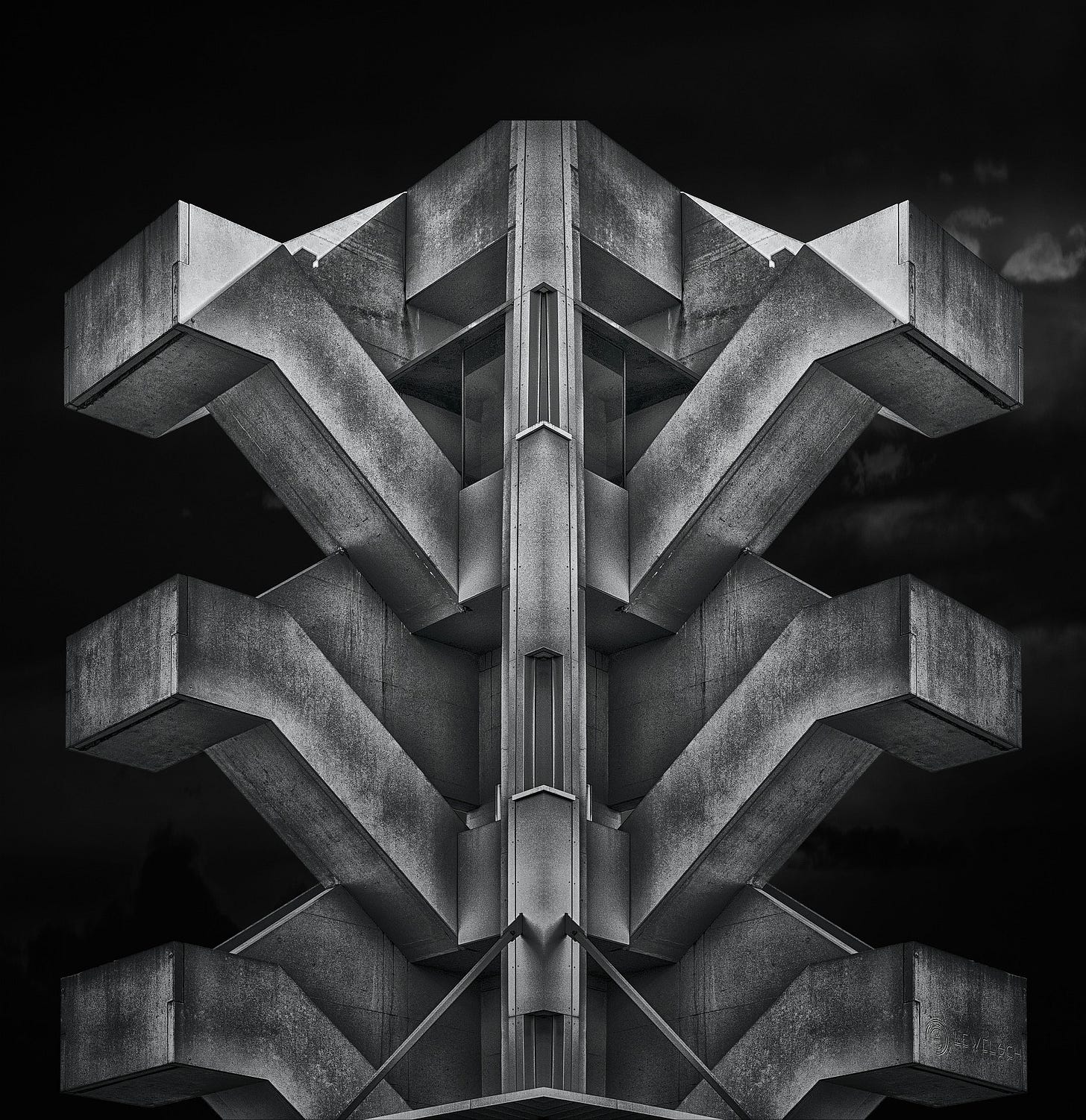Moving Walkways
Has your life become an Esher painting?
Even with first signs and inner knowings, it was a long journey to a confirmed diagnosis.
A year after my father's 60th birthday his neurologist diagnosed him with anxiety disorder which hindered his cognition. He was advised to decrease his stress levels. Everyone who knew my father collectively rolled their eyes upon hearing that prescription. We often joked that my father's hairline was receding due to his habit in times of stress of pushing his forehead back (and therefore, hairline!). It was unlikely that simply de-stressing was even possible, especially with daily reminders that you are losing both your memory and spatial recognition.
Soon after that diagnosis, however, a new stressful situation emerged. A different doctor ~ this one, a neuropsychologist ~ saw significant impairment in his brain imaging and testing which his first doctor, the neurologist, refuted. It became a major turf war.
Three whole years after my dad began practicing his pitching, the official diagnosis came: cerebral atrophy. My father had vascular dementia, fast-paced and not unlike early onset Alzheimer's.
With this verdict, it felt like my family entered the nightmare dreamscape of an Escher painting. One minute we were all traveling together on the moving walkway of life; the next minute my father was catapulted onto an escalator moving away from us. We could not go with him, though we fumbled desperately from escalator to escalator trying to reach him.
We all knew, however, where my dad's walkway was headed.
I imagine you know about moving walkways like the ones we traveled.
Not necessarily the moving walkway through dementia. Though there are 10 million new cases of dementia each year in the United States alone. 50 million cases worldwide.
That’s a lot of us.
Not necessarily the moving walkway towards death. Though life is a guaranteed round trip ticket.
That’s all of us.
The one I’m talking about is that of heartbreak. The Blues wouldn't exist without it. Blues musician John Hammond sings, “I got a real real bad feelin' / that my baby don't love me no more. You know the sky, the sky's been cryin'/ Can't you see the tears roll down?” We can't help but sing along with John Hammond because we all know days where the sky's been crying. The music itself soothes the very pain we try to hide from ourselves and others. Yet, when we hear John Hammond’s voice, we know that we are not alone. Heartbreak is what it means to be human.
Sorrow.
Struggle.
Addiction.
Despair.
Shame.
Isolation.
Pain.
Remorse.
Grief.
Trauma.
I know. I'm a minister. People don’t seek me out when things are going well. They come knocking on my door when their moving walkway has taken them into lands unknown. They are lost. Struggling.
Even after they’ve settled into the comfy chair with a cup of hot coffee or tea, it’s hard for them to begin. It's painful to utter three simple words that confirm their sudden reality:
“My heart’s breaking.”
“I am afraid.”
“I need help.”
Peter is heartbroken over the remaining years of his life. He has spent the pandemic dreaming about what he and his partner will do when the world opens up. In their golden years, they don’t have much time left. Yet, his partner doesn’t want to leave the safety of their home, and Peter feels trapped.
Brian is heartbroken over the conflict in his family. He is afraid that his daughter-in-law won’t let him see his grandchildren anymore. There has always been friction in their relationship. On his last visit, she antagonized him, and he blew up at her. He regrets his actions and fears that he will be cut off from his son and grandchildren.
Maia is heartbroken about her sister’s cancer diagnosis. It is compounded by her sister's limited access to health care and to a community that can take care of her. Maia feels both responsible and helpless.
John is heartbroken over his joblessness and money scarcity. He can’t find a job that earns enough to support his family. Each morning he pretends that he’s going to work so that his family won’t know his shame. All too soon, however, they’ll notice the lack of money coming in.
Serena is heartbroken about her alcohol addiction. After 6 months of sobriety, she has fallen off the wagon when she finds out that her ex-girlfriend is engaged to another person.
Jorge is heartbroken about the state of the world. He has been an active citizen in his town over the last twenty years. Yet, what he now sees in his community frightens him: lies, cynicism, division, hate.
Each is a real person who knocked on my door when their heartbreak was too much.
On my own walkway, I remember how regularly my heart broke throughout my father’s days with dementia. Witnessing the fear in his eyes. Watching his frustration when he could no longer write a letter to his best friend. The moment he didn’t know who I was. His frequent paranoia. The first day at his nursing home. Getting kicked out of the nursing home. Trying another nursing home. Reconciling the shriveled up man with the father I had loved. And how all of it affected my mom. The grief of losing everything I had loved about him one day at a time made a lasting scar.
Heartbreak is an essential part of what it means to be human. We all try so desperately to shield ourselves from it. But there it is. Bound up with our love. Bound up with those moments when we feel cut off from that love. In fact, we can predict that heartbreak will visit all of us. What we cannot predict is what we will choose to do with our heartbreak.


I loved this blog. It's beautifully written.